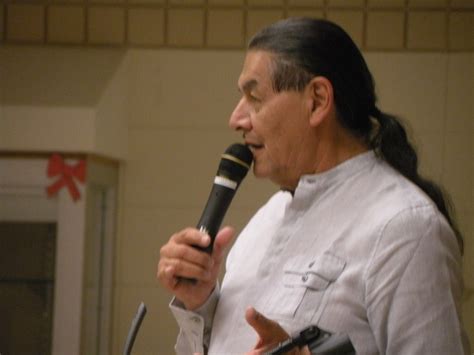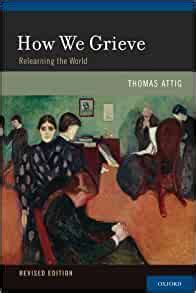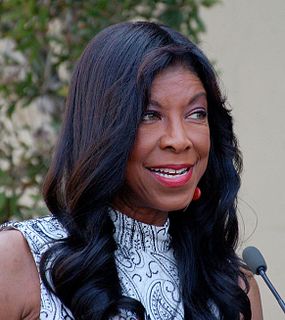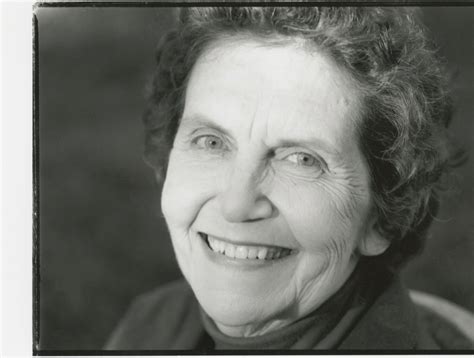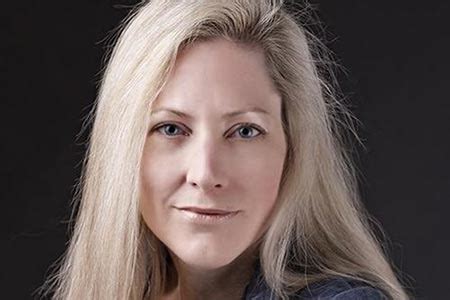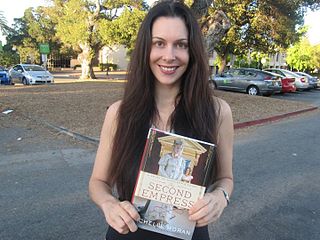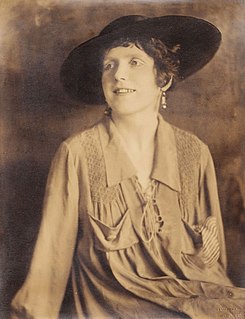Top 1200 Death And Grieving Quotes & Sayings
Explore popular Death And Grieving quotes.
Last updated on April 14, 2025.
When our spirit tells us it is time to weep, we should weep. It is part of the ritual, if you will, of putting sadness in perspective and gaining control of the situation. . . . Grief has a purpose. Grieving does not mean you are weak It is the first step toward regaining balance and strength. Grieving is part of the tempering process.
We've enshrined the purity, sanctity, value, and importance of bringing children into the world, yet we don't discuss death. There used to be an enshrined period where mourning was a necessary part of going through the process of grieving; death wasn't considered morbid or antisocial. But that's totally gone.
It's different when the person you love dies. There's an awful finality to death. But it is final. The end. And there's the funeral, family gatherings, grieving, all of those necessary rituals. And they help, believe me. When the object of your love just disappears, there's no way to deal with the grief and pain.
Any kind of grieving that is not allowed causes a break. In our culture, grieving in public is not encouraged, but in other cultures, it is done publicly. Some cultures have walls where people can cry. We don't have that. We have theatre where there's always the chance for you to face things within yourself.
In the time since the Baudelaire parents' death, most of the Baudelaire orphans' friends had fallen by the wayside, an expression wich here means "they stopped calling, writing, and stopping by to see any of the Baudelaires, making them lonely". You and I, of course, would never do this to any of our grieving acquaintances, but it is a sad truth that when someone has lost a loved one, friends sometimes avoid the person, just when the presence of friends is most needed.
Culturally, now, we're really tight around death, and as a result I think people miss out on a lot of the beautiful aspects of the end of life process that can be very helpful for the grieving process, that can be a really beautiful part of transition of life that we don't get to experience because it's not in the conversation.
Someone's killed 100,000 people. We're almost going, "Well done! You killed 100,000 people? You must get up very early in the morning! I can't even get down the gym. Your diary must look odd: 'Get up in the morning, death, death, death, death, death, death, death - lunch - death, death, death - afternoon tea - death, death, death - quick shower ...' "
Everybody is afraid of death for the simple reason that we have not tasted of life yet. The man who knows what life is, is never afraid of death; he welcomes death. Whenever death comes he hugs death, he embraces death, he welcomes death, he receives death as a guest. To the man who has not known what life is, death is an enemy; and to the man who knows what life is, death is the ultimate crescendo of life.
There is another side to death. Whether death happens through an act of violence to a large number of people or to an individual, whether death comes prematurely through illness or accident, or whether death comes through old age, death is always an opening. So a great opportunity comes whenever we face death.
There is no single best kind of death. A good death is one that is "appropriate" for that person. It is a death in which the hand of the way of dying slips easily into the glove of the act itself. It is in character, ego-syntonic. It, the death, fits the person. It is a death that one might choose if it were realistically possible for one to choose one's own death.
[There are, in us] possibilities that take our breath away, and show a world wider than either physics or philistine ethics can imagine. Here is a world in which all is well, in spite of certain forms of death, death of hope, death of strength, death of responsibility, of fear and wrong, death of everything that paganism, naturalism and legalism pin their trust on.
As deaths have accumulated I have begun to think of life and death as a set of balance scales. When one is young, the scale is heavily tipped toward the living. With the first death, the first consciousness of death, the counter scale begins to fall. Death by death, the scales shift weight until what was unthinkable becomes merely a matter of gravity and the fall into death becomes an easy step.
Laughter. Yes, laughter is the Zen attitude towards death and towards life too, because life and death are not separate. Whatsoever is your attitude towards life will be your attitude towards death, because death comes as the ultimate flowering of life. Life exists for death. Life exists through death. Without death there will be no life at all. Death is not the end but the culmination, the crescendo. Death is not the enemy it is the friend. It makes life possible.
Birth leads to death, death precedes birth. So if you want to see life as it really is, it is rounded on both the sides by death. Death is the beginning and death is again the end, and life is just the illusion in between. You feel alive between two deaths; the passage joining one death to another you call life. Buddha says this is not life. This life is dukkha - misery. This life is death.
The greatest mystery in life is not life itself, but death. Death is the culmination of life, the ultimate blossoming of life. In death the whole life is summed up, in death you arrive. Life is a pilgrimage towards death. From the very beginning, death is coming. From the moment of birth, death has started coming towards you, you have started moving towards death.
Small things such as this have saved me: how much I love my mother — even after all these years. How powerfully I carry her within me. My grief is tremendous but my love is bigger. So is yours. You are not grieving your son’s death because his death was ugly and unfair. You’re grieving it because you loved him truly. The beauty in that is greater than the bitterness of his death.
There is an art to grieving. To grieve well the loss of anyone or anything--a parent, a love, a child, an era, a home, a job--is a creative act. It takes attention and patience and courage. But many of us do not know how to grieve. We were never taught, and we don't see examples of full-bodied grieving around us. Our culture favors the fast-food model of mourning--get over it quick and get back to work; affix the bandage of "closure" and move on.


